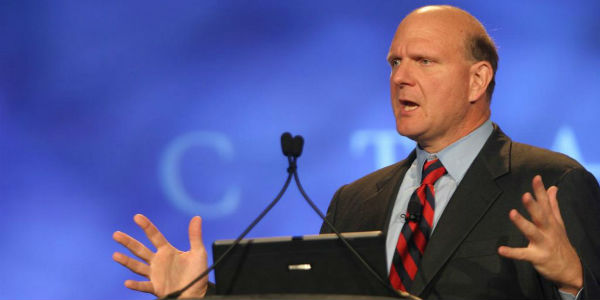Credit Unions Need Tri-Sector Leaders?

Steve Ballmer, Microsoft’s CEO for the past 13 years, recently announced that he would be stepping down a year from now. This means that he can take more time saying goodbye than the Yankees’ Mariano Rivera who has been toasted by friend and foe this year, the last before he retires as the greatest reliever of all time. The problem is that whereas Mariano is a beloved figure who can still pitch while saying goodbye, the CEO who announces his departure so far out has about as much influence as Barack Obama does over House Republicans and is about as welcome as Alex Rodriguez at a DARE convention.
Succession planning for both boards and CEOs is one of the important tasks facing credit unions. While it borders on incompetence that a company as big and sophisticated as Microsoft doesn’t have a good idea who its next leader will be, Microsoft will survive. When credit unions make the same mistake, they may end up withering away.
One of the reasons that credit unions and other companies have such a tough time finding new leaders is because they cast their net too narrowly. An article in this month’s Harvard Business Review argues that the most effective leaders are tri-sector leaders, who can segue between the worlds of government, not-for-profits and business. It argues that issues like how best to implement health care reform, for example, are those that have a huge impact on business but can only be solved if business, not-for- profits and government coordinate their activities. Your best leaders are those individuals with the skill set, intellect and interest to synthesize all these sectors.
Although the article was talking about the future captains of industry — people like Cheryl Sanberg, who served as Larry Summers chief of staff before becoming one of the top executives at Facebook — the argument is particularly relevant to credit unions as we look around to see where we might find our next board members and CEOs. After all, there is no other industry that, by definition, is designed to participate simultaneously in all three of these sectors. Think about it. Not only are we constrained by government regulations but we are given not-for-profit status to make sure people have reasonably priced financial products and at the same time must effectively compete with the for-profit financial industry or end up in receivership or on the losing end of a merger.
If your credit union does do succession planning, ask yourself what skills the next leader needs. For instance, understanding what products best attract new members or how to manage the credit union’s investments are important skills, but so is the ability to translate your credit union’s not-for-profit status into a tangible good for the community. And let’s not forget, as community leaders your ability to speak the language of your local politicians can go a long way to helping your credit union grow, not to mention the industry as a whole.
Steve Ballmer was a long-time employee of Microsoft who understood the company as well as anyone. But his knowledge of the past didn’t help him anticipate the explosion of tablets. And the old guard at Microsoft was caught flat-footed a decade ago when it was sued for violating anti-trust laws.
The truth is, no one knows what issues credit unions are going to face in 15 years. While experience is a vital attribute, there are many potential leaders that wouldn’t know what a SEG is, but have the aptitude to deal with issues as they arise and learn the things they need know.
Credit unions should actively recruit staff and executives that don’t have financial service backgrounds. We should give them a chance, particularly if they come from other not-for-profits, government or business and are willing to leverage their experience for the benefit of credit unions.

